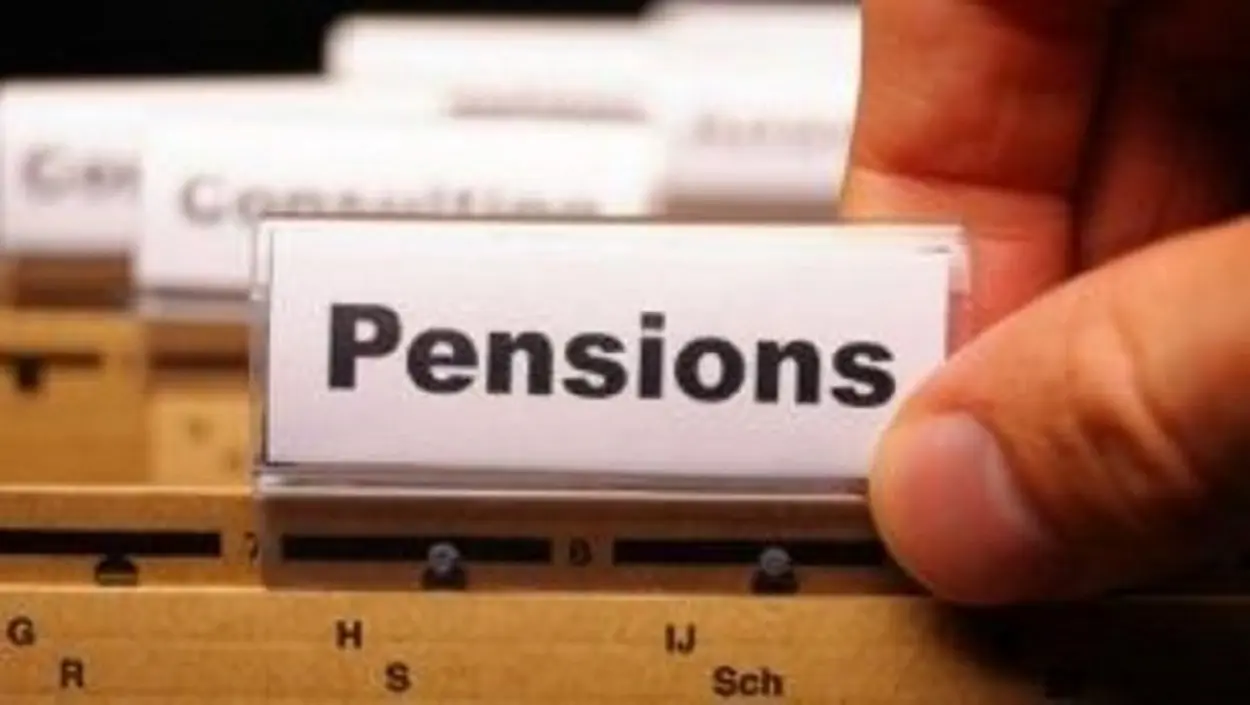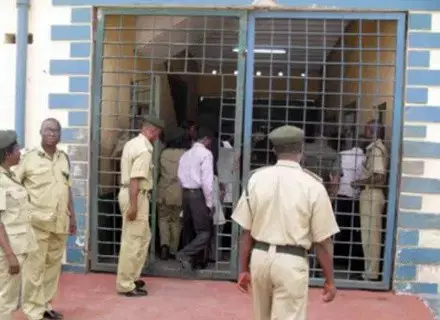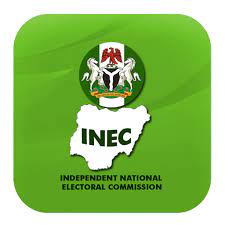COVER
Elections’ll Hold Nationwide Despite Cash Crunch, Protests – INEC

The Independent National Electoral Commission (INEC) has assured that the February 25 Presidential and National Assembly polls will hold nationwide despite the cash crunch and protests in some parts of the country.
He said this on Saturday in Abuja, after a tour of the training centre for INEC’s ad-hoc staff or presiding officers, and inspection of facilities of the national collation centre at the International Conference Centre (ICC).
Following the re-design of the N200, N500 and N1,000 by the Central Bank of Nigeria, Nigerians have been experiencing difficulty having access to the new notes.
With this development, there have been fears that the general elections might be postponed or suffer glitches.But INEC Chairman, Professor Mahmood Yakubu, has allayed those fears, saying the commission is working closely with the CBN and security agencies.
“The Central Bank has assured us that we will not suffer any encumbrances in that regard, no there are no issues with respect to that,” he stated.
“On what is happening around the country – the protests – is a security matter and security agencies have assured and reassured us that they will secure the environment for elections to hold peacefully nationwide. So we have no issues in that respect.”
The INEC Chairman who tasked the trainee Corps members to be loyal to Nigeria, Nigerians and not political parties, also told them that on no account should they leave the BVAS in the custody of another.
He warned that the corps members are going to be tracked to ensure accountability.
After visiting the training centres, Yakubu, INEC officials and journalists proceeded to the International Conference Centre (ICC) for inspection.
The INEC boss said that they will perform basically three activities in this ICC which has been serving as the national collation centre for the collation, announcement of winners and presentations of the Certificate of Returns (CoR) to president and vice president elect; as well as the senators and house of representatives members elect.
COVER
FG Disburses N5.12bn Pension Arrears to 90,689 DBS Pensioners

By Tony Obiechina, Abuja
The Federal Government has released funds for the disbursement of N5.12 billion in pension arrears to 90,689 Defined Benefit Scheme (DBS) pensioners under the Pension Transitional Arrangement Directorate.This was contained in a statement by the Head of Corporate Communications of PTAD, Olugbenga Ajayi.
He said that the directorate had finalised the disbursement of the money. The Nigeria Customs Service, the Nigeria Immigration Service, and Prisons Pension Department (CIPPD) pensioners are 8,626, received N276,032, for one-month arrears; the Police, Pension Department (PPD) pensioners are 9,681, received N619,584, for two months as arrears. The Civil Service Pension Department (CSPD) pensioners are 12,773, received N408,736, for one-month arrears, and the Parastatals Pension Department (PAPD) pensioners are 59,609, received N3,814,He said that the payment reaffirms the administration’s commitment to ensuring that pensioners receive their due entitlements in line with the Renewed Hope Agenda of President Bola TinubuAccording to the statement, the approvals align with the President’s Renewed Hope Agenda.“This move shows President Tinubu’s strong commitment to senior citizens’ welfare and marks a new era in DBS pension management,” said PTAD, Executive Secretary, Tolulope Odunaiya.Among the key measures is the immediate implementation of an extra budgetary allocation to enforce new pension rates for DBS pensioners.The President also endorsed the adoption of a proposed pension harmonisation policy, which will be incorporated into the 2026 pension budget. Additionally, health insurance coverage for all DBS pensioners has been approved, ensuring access to essential healthcare services.The proposed reforms include a new pension rate of N32,000 and incremental increases of 10.66% and 12.95% for pensioners from defunct and privatised agencies. Other components of the reform package include harmonisation of pension rates across all DBS pensioners and their enrolment into the National Health Insurance Scheme (NHIS).In June, PTAD announced the successful disbursement of N8.6 billion in pension arrears to 148,625 eligible DBS pensioners across various sectors. The payments reflect the implementation of the N32,000 pension increment approved by President Tinubu in 2024.PTAD had previously settled arrears related to the first pension increment of 20% to 28%, which came into effect in January 2024.COVER
NAF Offensive Decimates 592 Terrorists, Destroys 372 Assets in Eight Months

By David Torough, Abuja
The Nigerian Air Force (NAF) has killed no fewer than 592 terrorists and destroyed 372 enemy assets in Borno within the last eight months, surpassing the total operational gains recorded in 2024.A statement by NAF’s spokesman, Air Commodore Ehimen Ejodame yesterday said the Chief of the Air Staff (CAS), Air Marshal Hasan Abubakar, said this during a courtesy visit to Gov.
Babagana Zulum of Borno. Abubakar said the offensive had destroyed 206 technical vehicles and 166 logistics hubs in deep hostile territory, with coordinated day-and-night strikes from Gonori to Rann, Dikwa to Damboa, Azir to Mallam Fatori.He said the offensive had been boosted by the deployment of A-29 Super Tucano aircraft capable of precision and night missions, Mi-171 helicopters for medical evacuation and logistics, and enhanced intelligence, surveillance and reconnaissance platforms for round-the-clock target tracking.He added that a new Mi-35 gunship was expected to further intensify close-air support for ground troops in the theatre.“Backed by an upgraded fleet and precision night-strike capabilities, NAF aircraft executed 798 combat sorties, clocking over 1,500 operational flight hours in the Air Component of Operation Hadin Kai.“This year, our air war is faster, sharper, and more surgical.“We are taking out high-value targets, crippling their logistics, and hunting down every cell that threatens the peace of the North-East,” he said.The CAS also praised the “Borno Model” of combining community-driven non-kinetic measures with decisive military action, saying it had proven effective in the counter-insurgency campaign.He also inspected facilities at the NAF Base, met with aircrew and ground personnel, and received operational briefings.He reaffirmed the NAF’s commitment to precision air power, intelligence-led operations, and inter-agency collaboration to protect Nigerians.In his response, Gov. Zulum praised the NAF for its sustained air support in degrading terrorist capabilities and protecting communities.According to him, the NAF has been a steadfast partner in their fight against insurgency.“Your operations have saved countless lives and allowed our communities to begin rebuilding.“The people of Borno recognise your sacrifices and stand firmly behind you,” he said.COVER
Over 8,000 Mentally ill Inmates in Custody Nationwide, Says NCoS

By Divine Ndukwe, Abuja
The Nigerian Correctional Service (NCoS) has disclosed that at least 8,246 inmates across the country’s custodial centres are living with mental health conditions.Assistant Controller General of Corrections in charge of Medical Services, Dr.
Glory Essien, revealed the figures yesterday in Abuja during the third public hearing of the Independent Investigative Panel on Alleged Corruption, Abuse of Power, Torture and Other Inhumane Treatment by the NCoS. Essien described incarceration as a deeply stressful experience, noting that the loss of freedom can trigger or worsen mental health conditions. She explained that inmate-leaders are trained to identify and report cases of psychological distress for early intervention, but available resources remain insufficient.“If you’re in a facility housing 500 to 1,000 inmates, with just one doctor or psychologist, monitoring everyone individually is impossible,” she said, citing logistical and funding challenges that hamper adequate care.Similarly, the NCoS Assistant Controller General in charge of Pharmaceutical Services, Mohammed Bashir, acknowledged that drug shortages and limited staffing remain major obstacles despite government funding.He revealed that a psychological services unit has been established, partnering with psychiatric associations to visit major facilities, though resources still fall short of demand.Permanent Secretary in the Ministry of Interior, Dr. Magdalene Ajani, called for urgent private sector support, stressing the need to deploy more psychiatric professionals to underserved states. “Please come to Macedonia and help us,” she appealed to the Nigerian Medical Association and pharmaceutical companies.Meanwhile, in Kwara State, the Nigerian Medical Association (NMA) has expressed alarm over rising mental health issues among doctors, linking the trend to burnout, workplace violence, and poor working conditions.Kwara NMA Chairman, Prof. Olushola Abdulrahman Afolabi, said a significant proportion of doctors experience depression, anxiety and other psychiatric disorders, often without seeking help due to stigma.Former NMA chairman, Prof. Issa Baba Awoye, warned that current figures could be worse than past studies, especially in resource-poor settings.The NMA is advocating for mandatory mental health evaluations for doctors, alongside increased awareness and stigma reduction campaigns. “Our healthcare system can only be as strong as the mental and physical well-being of those who sustain it,” Afolabi stated.Both the NCoS and NMA agree that mental health care must be prioritized, not just for inmates, but for those tasked with caring for the nation.





























